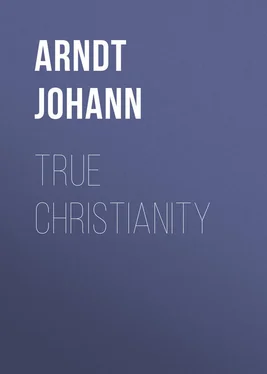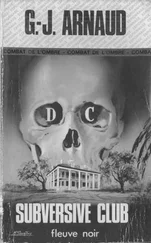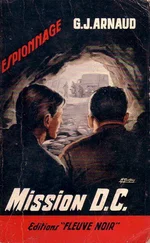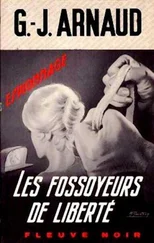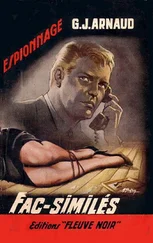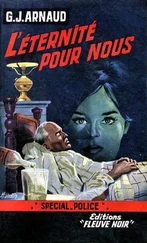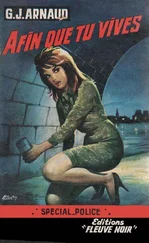Johann Arndt - True Christianity
Здесь есть возможность читать онлайн «Johann Arndt - True Christianity» — ознакомительный отрывок электронной книги совершенно бесплатно, а после прочтения отрывка купить полную версию. В некоторых случаях можно слушать аудио, скачать через торрент в формате fb2 и присутствует краткое содержание. ISBN: , Жанр: foreign_antique, foreign_prose, на английском языке. Описание произведения, (предисловие) а так же отзывы посетителей доступны на портале библиотеки ЛибКат.
- Название:True Christianity
- Автор:
- Жанр:
- Год:неизвестен
- ISBN:http://www.gutenberg.org/ebooks/34736
- Рейтинг книги:5 / 5. Голосов: 1
-
Избранное:Добавить в избранное
- Отзывы:
-
Ваша оценка:
- 100
- 1
- 2
- 3
- 4
- 5
True Christianity: краткое содержание, описание и аннотация
Предлагаем к чтению аннотацию, описание, краткое содержание или предисловие (зависит от того, что написал сам автор книги «True Christianity»). Если вы не нашли необходимую информацию о книге — напишите в комментариях, мы постараемся отыскать её.
True Christianity — читать онлайн ознакомительный отрывок
Ниже представлен текст книги, разбитый по страницам. Система сохранения места последней прочитанной страницы, позволяет с удобством читать онлайн бесплатно книгу «True Christianity», без необходимости каждый раз заново искать на чём Вы остановились. Поставьте закладку, и сможете в любой момент перейти на страницу, на которой закончили чтение.
Интервал:
Закладка:
§ 22. Arndt was freed from the unpleasant relations in which he stood to his colleagues in Brunswick, in which city he had spent about ten years, by a call which he received in 1608 to enter a new field of labor in Eisleben. This city, which, as in the days of Luther (who was born and baptized, and who also died there), still belonged to the territory of the Counts of Mansfeld, is at present incorporated with the kingdom of Prussia (Province of Saxony). It was here that Arndt ventured to publish the whole of the Four Books of his “True Christianity.” In this new position, his admirable character and spirit were justly appreciated alike by his patrons, the Counts of Mansfeld, by his colleagues, and by the people. The fidelity with which he remained at his post during the prevalence of an epidemic that carried off many of the inhabitants, his self-sacrificing spirit in the discharge of his pastoral duties, and his judicious course as an assessor of the local consistory, demonstrated the true nobility of his soul – the spirit of the divine Redeemer. However, even though his relations with all who surrounded him were of the most friendly character, he did not remain longer than about two years and a half in Eisleben. He had been repeatedly invited to assume important charges, which he declined to accept; for while he had often found opponents, his great personal merit, his eminent services, both as a preacher of the Gospel and as an author of devotional works, and his godly spirit, had secured for him the respect, confidence, and love of the whole religious public. Duke George of Brunswick-Lüneburg, who at that time resided in Celle (Zelle), invited him, in the year 1611, to accept the two offices of court-preacher and of General Superintendent of ecclesiastical affairs in the principalities of Brunswick and Lüneburg. (Celle was subsequently attached to the kingdom of Hanover, but has, in the most recent times, been absorbed, with the contiguous territories, by Prussia.) The Count of Mansfeld very reluctantly consented to Arndt's removal; the latter, however, believed that it had become his duty to enter the wide and inviting field of labor which Providence had opened to him. The reigning duke, who was deeply interested in the welfare of the Lutheran Church, judiciously and vigorously sustained his new court-preacher in all his labors. The latter, in addition to his ordinary pastoral duties, visited the congregations of the whole territory, introduced various ecclesiastical reforms, and continued till his death, which occurred May 11, 1621, to enjoy the divine blessing himself, and to be a blessing to all whom his influence reached. If he was born during a stormy period, and lived in an age of controversies which wounded his soul, he was, nevertheless, like Luther, very happy in being permitted to terminate his labors precisely at the time when he was called away. For, as Luther closed his eyes in peace during the year which preceded the disastrous battle of Mühlberg (April 24, 1547), so Arndt fell asleep soon after the Thirty Years' War began, before the world saw those horrors which language fails to describe in their awful extent. He had contracted a disease of the throat, which was subsequently aggravated by a violent fever; and his exhausted frame at length yielded to the assault of disease. He sent for his friend and brother, the Rev. William Storch, early in the morning of May 9. After being placed on a chair, he humbly made a general confession of his sins, declared once more that he adhered as heretofore to the pure doctrine of God's word and rejected every error, and then, with all the cheerfulness of Christian faith, received the Lord's Supper. Dr. Morris, in the work referred to, in a note above, quotes from his authorities the following: “Mr. Storch then addressed him (in language similar to that which Dr. Jonas used in speaking to the dying Luther) as follows: ‘I do not doubt, that as you have never entertained any doctrine contrary to God's word, but have always continued firm and steadfast in the pure, unadulterated word, the Scriptures of the prophets and apostles, the Augsburg Confession, and other Symbolical Books of the Lutheran Church, and most heartily and sincerely despised and rejected all contrary doctrines, so you will also by God's grace maintain to the end the same doctrines and faith which you have publicly preached and professed.’ Arndt replied several times, in a weak but intelligible voice, most decisively, ‘Yes, yes, that I will, even to the end.’ ” On the 11th of May he began to sink rapidly, but was still able to repeat many of his favorite texts, such as Ps. 143:2, and John 5:24. After having slept a short time, he awoke, looked upward, and exclaimed with a comparatively loud voice: “We beheld his glory, the glory as of the only begotten of the Father, full of grace and truth.” John 1:14. His wife asked him when he had seen that “glory.” He replied: “I saw it just now. O what a glory it is! It is the glory which eye hath not seen, nor ear heard, neither hath entered into the heart of man to conceive of. This is the glory which I saw.” – When he heard the clock striking at eight in the evening, he asked what the hour was. When it struck again, he repeated the question. On being told that it was striking nine, he said: “Now I have overcome all.” These were the last words of this “good soldier of Jesus Christ.” 2 Tim. 2:3. He lay perfectly still until after midnight, when he breathed his last. God had given him a peaceful death. The serenity of his soul in his last hours seemed to linger on his features, even after the spirit had departed.
§ 23. Two dukes of Brunswick-Lüneburg followed him to the grave (May 15th), as a testimony of their sense of the great worth of their revered spiritual guide. The text of the funeral sermon, delivered by Rev. Mr. Storch, consisted of the words, “I have fought a good fight,” etc. 2 Tim. 4:7, 8. His remains were deposited in the church at Celle. The tomb exhibits the following inscription:
Qui Jesum vidit, qui mundum et daemona vicit,
Arndius in scriptis vivit ovatque suis.
(That is: Arndt, who saw Jesus, and conquered the world and the devil, lives and triumphs in his writings .)
§ 24. Nothing could be more unjust than any charge affecting the purity of the faith of Arndt as a Lutheran Christian. His general orthodoxy was always readily admitted; a few unreasonable and prejudiced men, however, who suspected that mysticism and other errors were concealed in the “True Christianity,” although the existence of such matter could not be established, nevertheless alleged, with a certain morbid feeling, that Arndt did not adopt the entire creed of the Lutheran Church, as set forth in “all her symbolical books.” This circumstance accounts for the frequency and earnestness with which he declares his unconditional acceptance of, and hearty belief in, all the details of the Lutheran faith. Thus the reader will find, at the close of the Preface to Book I., an emphatic declaration of his recognition of the doctrines of all the Symbolical Books , the names of which he enumerates in full. See, also, the conclusion of Book II., and the conclusion of the Preface to Book IV., where similar declarations occur. He repeats them in his Preface to Book VI., where he employs the following language: “My dear reader, inasmuch as our holy Christian faith, the pure evangelical doctrine, has, for about one hundred years, been elucidated, purified, and sufficiently explained, in accordance with the rule of the holy Word of God, and also been cleansed from many errors through the means of two glorious and praiseworthy confessions of faith, namely, the Augsburg Confession, and the Formula of Concord, which have hitherto been, and still continue to be, my own confession of faith; and, inasmuch as some have, at the same time, uttered complaints respecting the ungodly manner of life of the present world, with which the Christian faith cannot coexist; therefore, I wrote, some years ago, Four Books on True Christianity, in which I have depicted the internal, and, also, the external Christian life. For although the pure doctrine is the foremost point of true Christianity , I have, nevertheless, not wished to treat of it in a special manner, as this has been copiously and superabundantly done by others, and is still daily done; and I have taken only the Christian life as my subject.” This Book VI. appeared somewhat less than a year before his death, and gives special prominence to the last of the Lutheran confessions of faith – the Formula of Concord – in which the doctrines concerning the Person of Christ, the Lord's Supper, etc., are set forth in all their details; he thus repeats anew his cordial acceptance of the doctrines contained therein. In a letter of thanks addressed to Dr. Mentzer, of Giessen (Book VI., Part II., Letter 7), he expressly rejects the serious doctrinal errors of Schwenkfeldt respecting the Scriptures, the Person of Christ, the two Sacraments, etc., and adds: “These errors have been publicly condemned and rejected, partly in the Augsburg Confession, and partly in the Formula of Concord, after the pure doctrine was firmly established.” He concurs, of course, in the condemnation of such errors. – In Letter 8, of the same Book, addressed to Dr. Piscator, of Jena, he says: “I call on the great God, the Searcher of hearts, as my witness, that it was not in my mind, in anything which I have written, to depart from the true religion of the Augsburg Confession and the Formula of Concord, and that I had no intention to disseminate erroneous opinions, much less to defend any which conflicted with the Symbolical Books of our Church.”
Читать дальшеИнтервал:
Закладка:
Похожие книги на «True Christianity»
Представляем Вашему вниманию похожие книги на «True Christianity» списком для выбора. Мы отобрали схожую по названию и смыслу литературу в надежде предоставить читателям больше вариантов отыскать новые, интересные, ещё непрочитанные произведения.
Обсуждение, отзывы о книге «True Christianity» и просто собственные мнения читателей. Оставьте ваши комментарии, напишите, что Вы думаете о произведении, его смысле или главных героях. Укажите что конкретно понравилось, а что нет, и почему Вы так считаете.
